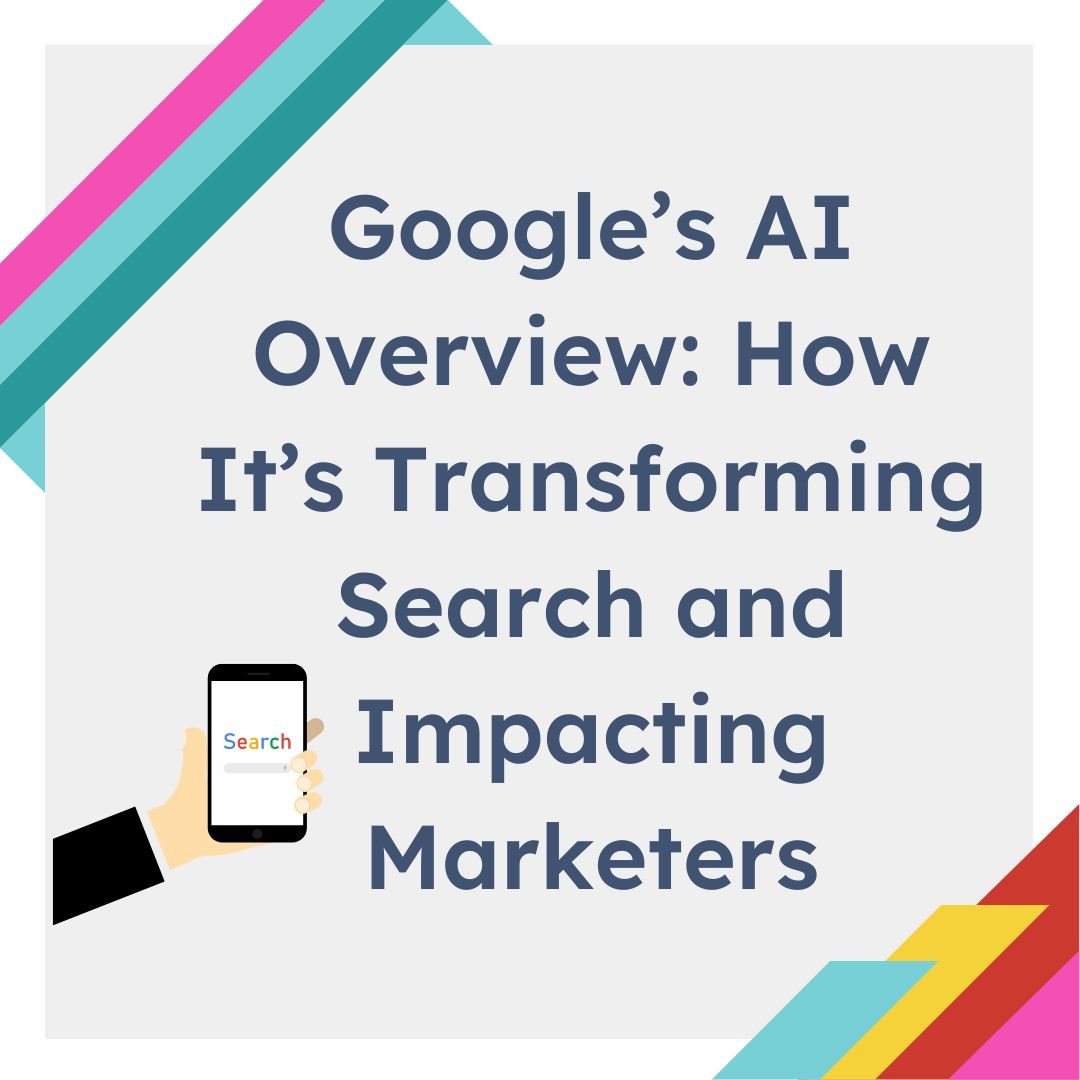Google’s AI Overview feature marks a new era in search engine technology, reshaping how users interact with information and how marketers should approach SEO and content strategies. By delivering concise, AI-powered summaries of complex queries, the AI Overview offers users a quick understanding of a topic with links to relevant web sources. But what exactly is this feature, and how does it affect digital marketing? Let’s break it down.
What is Google’s AI Overview?
Google’s AI Overview is an advanced search tool powered by a customised language model integrated with Google’s core web ranking systems. The feature gives users a high-level summary of the information they seek while citing relevant links to allow for deeper exploration.
Unlike traditional search results, where users have to click through multiple links to find comprehensive answers, the AI Overview is designed to provide a direct response to more difficult queries. Whether a user is asking about multi-step processes, technical topics, or questions that require a nuanced explanation, Google’s AI generates a concise overview,
followed by curated web content for further reading?.
This integration of AI into search delivers results that are not only more relevant but also more efficient for the user. By utilising this feature, users can ask longer and more detailed questions, confident that they’ll get a reliable snapshot of the topic they’re researching.
How Does Google’s AI Overview Work?
Google’s AI Overview functions differently from a chatbot or other AI language models like Bard or ChatGPT. While these systems provide outputs based solely on training data, Google’s AI Overview is deeply tied to the company’s search index. When users input a query, the AI doesn’t just summarise existing data—it actively finds the most relevant, high-quality
results based on Google’s traditional search tasks. The feature then delivers a summary, backed by links to those reliable sources?.
This has resulted in users finding higher satisfaction in their search experience, with better quality clicks and engagement on the sites linked from the AI Overviews.
Impact of Google’s AI Overview on Marketers
Google’s AI Overview brings with it both opportunities and challenges for marketers, especially those involved in content creation and SEO strategies. Here’s how it specifically affects marketing professionals:
1. Changes in Organic Traffic Patterns
One of the immediate impacts of Google’s AI Overview is how it influences organic search traffic. With the AI providing a summary right on the search page, users may find answers to their queries without needing to click on multiple links, potentially reducing traffic to some websites. This is particularly true for informational content where users were previously more
likely to click through.
However, the quality of the clicks that do come through from AI Overviews is often higher. Since the AI directs users to authoritative, in-depth resources, those who do click are more likely to stay on the page longer and engage more deeply?.
This creates a shift where traffic might decrease slightly, but user engagement and conversion rates could improve for marketers whose content is featured.
2. Optimising Content for Complex Queries
AI Overview excels at answering complex, multi-step questions. For marketers, this means optimising content not just for traditional SEO, but for AI-powered search as well. Marketers need to focus on creating long-form, authoritative content that can answer detailed questions in-depth.
Additionally, using schema markup and structured data is more crucial than ever. Properly marked-up content makes it easier for Google’s AI systems to understand and extract the key information needed to populate AI Overviews?
3. The Importance of Authority and Trustworthiness
Google’s AI Overview heavily relies on high-quality, authoritative sources to build its summaries. Marketers must ensure their content is credible, well-researched, and aligned with Google’s content quality guidelines. This means focusing on E-E-A-T (Experience, Expertise, Authoritativeness, and Trustworthiness) principles, as Google’s AI prioritises websites that demonstrate these qualities.
To stand out and be featured in an AI Overview, marketers should build content that not only answers users’ queries but does so comprehensively and accurately. Content creators will need to keep an eye on updates to Google’s AI and search algorithms to stay competitive in this AI-driven environment.
4. Opportunities for Local Businesses and eCommerce
Google’s AI Overview also offers features that benefit local businesses and eCommerce platforms. By integrating product listings, reviews, and availability within the search summary, AI Overviews can give businesses an edge. For local businesses, this could mean better visibility for product-related queries and local search results?.
Marketers working with local businesses should ensure that their products and services are optimised for Google’s AI tools like Google Shopping and local search, improving the chances of being featured in AI-generated summaries.
Adapting Marketing Strategies for AI-Driven Search
For marketing agencies like Studioworx, the rise of Google’s AI Overview means staying ahead of the curve. Marketers must adapt their strategies to ensure their content is optimised not just for traditional SEO but also for AI-powered search features.
Here are some strategies marketers should consider:
- Focus on Long-Form, In-Depth Content: Create authoritative, well-researched pieces that answer user queries.
- Use Structured Data: Implement schema markup to help Google understand and
index content more effectively. - Build Trust and Authority: Follow Google’s E-A-T guidelines to ensure your
content ranks higher and is considered for AI-generated summaries. - Local SEO: Optimise local business listings and product data to appear
in AI Overviews for product-related or location-specific queries.
Google’s AI Overview is a game-changer in how search works, providing users with faster, more comprehensive results while challenging marketers to adapt their strategies. While the potential for reduced traffic exists, the feature also offers opportunities for higher-quality engagement and conversions by highlighting authoritative content.
Marketers who understand and embrace these changes—by focusing on quality, structure, and user engagement—will be well-positioned to thrive in this new, AI-driven search landscape.
